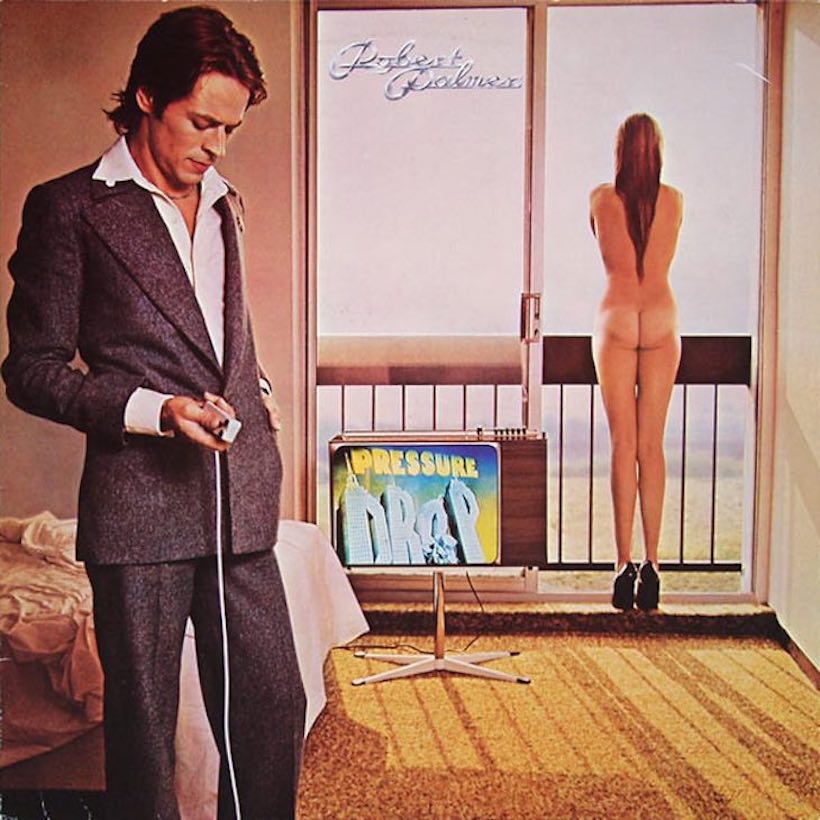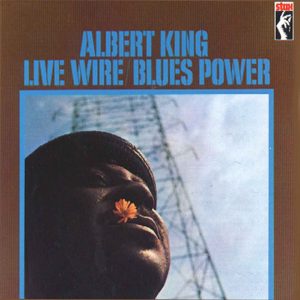In November 1975, Robert Palmer was a 26-year-old with an increasingly sophisticated taste for blue-eyed soul infused with the best international ingredients, gathered from New Orleans to Kingston, Jamaica.
Just over a year earlier, after cutting his teeth on the UK rock scene with the Alan Bown Set, Dada and Vinegar Joe, he had made his solo debut with Sneakin’ Sally Through The Alley. It was an album that combined his own songwriting flair with an ear for southern-flavored rhythm and blues, as created by the likes of Allen Toussaint (whose song became the title track) and Little Feat’s Lowell George.
Indeed, George was among the A-list team of contributors to that LP, along with members of the Meters, other crack American session men and British notables from Simon Phillips to Steve Winwood. When Palmer came to make the follow-up, George was again present, along with fellow members of Little Feat, for the distinguished album Pressure Drop.
The cover of the disc would now be regarded in many quarters as politically incorrect, and even though it was released in the different social milieu of the mid-1970s, it was not immune from controversy then either. On its release, Tower Records announced that it would not be stocking the album because of its cover image.
With Steve Smith again serving as producer, George and Toussaint were again among the contributing songwriters, as Palmer turned his hand to “Trouble,” from Little Feat’s Sailin’ Shoes album of 1972, and Allen’s “Riverboat,” first sung by Lee Dorsey in 1970. The title song reflected the Englishman’s love of reggae, as he covered Toots and the Maytals.
But the rest of the album saw Palmer asserting himself as a composer in his own right, on songs such as the percussive “Work To Make It Work,” the lush “Back In My Arms” and “Here With Me Tonight,” the latter co-written with his former Vinegar Joe colleague Pete Gage.
Best of all were the album’s gorgeous opener, “Give Me An Inch,” and the closing “Which Of Us Is The Fool.” Two prime examples of blue-eyed soul, they served notice that Palmer was a singer-songwriter on a rapid rise. They drew on the delectable string-laden arrangements of the peerless Gene Page, on an album that also boasted the brilliance of the Muscle Shoals Horns. Billboard called the results “a superb example of rock and roll versatility.”
Listen to the best of Robert Palmer on Apple Music and Spotify.
Palmer was still a year away from his UK album chart debut, and where Sneakin’ Sally Through The Alley had reached No.107 in a 15-week run on the American chart, Pressure Drop stopped at No.136, in an eight-week stint. But it had many admirers. Rolling Stone called the record “easy to like and easy to live with.”
In that February 1976 article, writer Bud Scoppa described Palmer as “another marcher in the growing column of white folks who prefer playing it greasy and getting down (notable recent examples: Bowie, Cate Bros., Frankie Miller, Little Feat). A talented chameleon, he knows what he wants and gets it.”
Buy or stream Pressure Drop.




